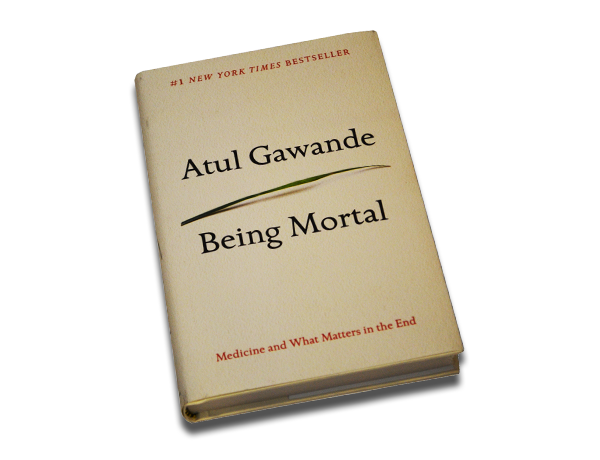Book of the Month: September 2015
 Dr. Atul Gawande has brought his insights as a surgeon, public health researcher, and professor of medicine to the literary world for many years. He has been recognized for his bestselling books and contributions to the New Yorker, primarily concerning modern medicine. Gawande’s writing is notable for migrating away from the thrilling, groundbreaking forefronts of treatment, often turning a critical eye on cutting-edge medicine and the expense and error it can introduce.
Dr. Atul Gawande has brought his insights as a surgeon, public health researcher, and professor of medicine to the literary world for many years. He has been recognized for his bestselling books and contributions to the New Yorker, primarily concerning modern medicine. Gawande’s writing is notable for migrating away from the thrilling, groundbreaking forefronts of treatment, often turning a critical eye on cutting-edge medicine and the expense and error it can introduce.
Gawande’s most recent book, Being Mortal, takes a bracing look at the dissonance between the aims of the US healthcare system and the best interests of aging or chronically ill patients. By placing himself and his own dawning fallacies as a physician into the story, he traces a path away from every-available-treatment and instead toward a new kind of compassionate care.
Fittingly, Gawande begins Being Mortal with an exploration of death — specifically, the incredible leaps that have been made in staving it off and expanding the average lifespan. But, he reasons, longer life often translates to longer and slower declines, with older individuals increasingly needing assistance and treatment as frailty and illness naturally mount. This has necessitated new models of care for older Americans; his book includes chapters on the origin of skilled nursing and assisted living facilities. His research spotlights thought leaders who envisioned novel approaches, and the benefits and drawbacks of those practices.
Through the course of his writing, Gawande comes around to a new conviction, namely, ‘resisting the urge to fiddle and fix and control’ as our bodies inevitably begin to diminish with age. Through patient stories, interactions, and shadowing of geriatric and hospice specialists, the author empathizes with subjects struggling to maintain their capabilities, or coping with untenable side effects of treatment. He shares his own failings honestly as he begins to introduce difficult conversations into his practice, clumsily attempting to focus on his patients’ questions and fears.
The book’s closing chapters focus on another death: that of Gawande’s own father, also a surgeon. The author traces his father’s diagnosis, decline, treatments, and transition to hospice care through the lens of a family member and caregiver, juggling proffered treatments, his loved one’s goals, and the family’s hopes and expectations. From his vantage points as historian, researcher, witness, practitioner, and loved one, Gawande offers the reader a comprehensive thought piece that can itself spark many conversations among seniors, loved ones, and patients of all ages.
Being Mortal: Medicine and What Matters in the End
Atul Gawande
Metropolitan Books
304 pages; $26.00

